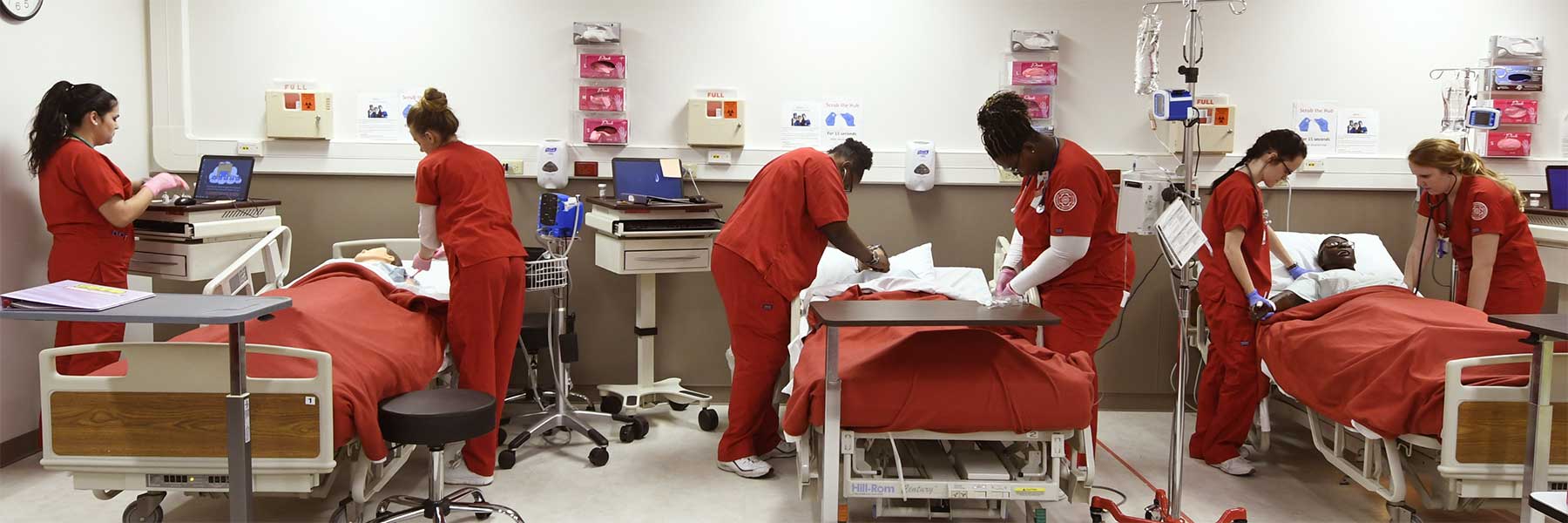In the IU Southeast School of Nursing, simulation is incorporated across the pre-licensure undergraduate curriculum. Simulation in nursing education provides students with hands-on learning opportunities using technologically advanced simulation mannequins. It fosters clinical judgment, critical thinking, and clinical reasoning in nursing students.
Nursing simulation experiences
Nursing laboratory
The Judge Carlton and Sue Sanders Laboratory for Nursing Education is the introductory simulation space primarily used for sophomore nursing students in the Health Assessment and Science and Technology courses. This space includes 12 beds with low- to medium-fidelity mannequins and other equipment and technology—such as intravenous pumps, tube feeding pumps, and bedside computers—that could be present in a patient’s hospital room. This main lab also has a simulated pharmacy space and task trainers that are used for specific clinical skills practice. A SimServe RX electronic medication cart is also available for student use during simulated medication administration.
Simulation rooms
In addition to the main laboratory space, we have four specialty simulation rooms that allow for simulation experiences across a patient's lifespan: pediatrics, obstetrics, critical care, and medical-surgical nursing. The specialty simulations utilize mannequins with medium to high levels of realism. For specialty patient simulation scenarios, students work collaboratively to put clinical judgment into practice by recognizing and analyzing cues, prioritizing hypotheses, generating solutions, taking action, and evaluating outcomes. Simulations are videotaped, with a debriefing held immediately after the simulation session; self-reflection for the student completing a simulation experience is integral to learning.
Ready to take a tour of our facilities and learn about the program?
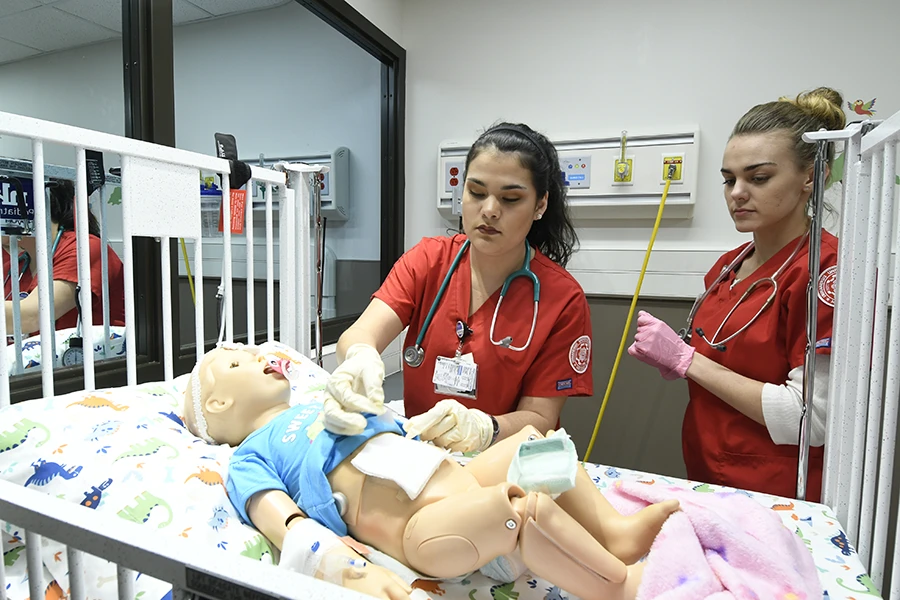
Pediatric simulation lab
The pediatric simulation lab is utilized primarily by nursing students during the spring semester of their junior year to gain experience caring for patients from infancy through preschool. Lab simulations help students develop prioritization, critical thinking, clinical judgment, family care, teaching, communication, growth and development, and technical nursing skills.
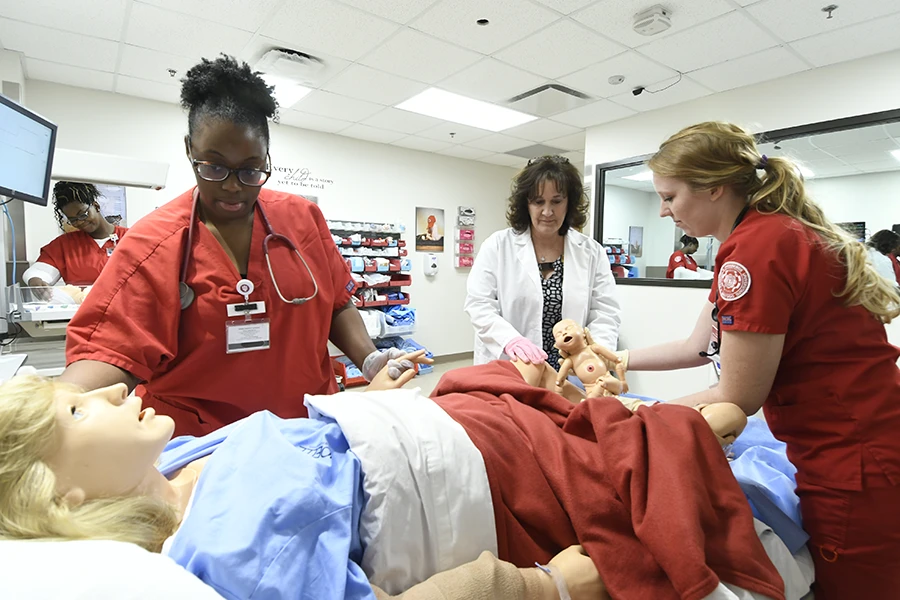
Obstetric simulation lab
Junior nursing students engage in assisting a mother through the stages of labor while working to manage any complications that arise. Students assist with the delivery and assessment of the newborn and move forward with caring for the mother and newborn immediately after birth.
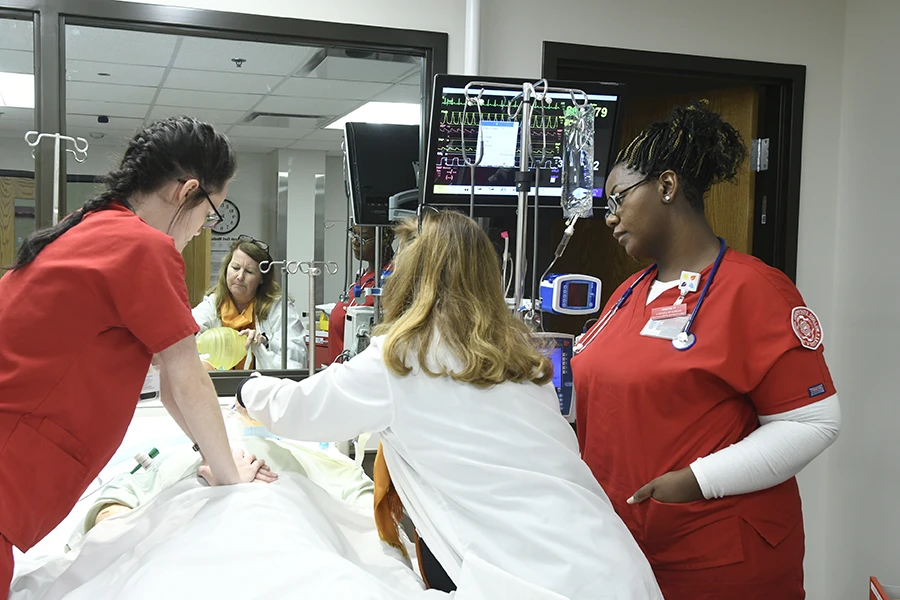
Critical care simulation lab
The critical care nursing simulation lab is utilized by nursing students during the fall semester of their senior year as part of the requirements for the Restorative Health related to Multi-System Failures (NURS-S 471) course. This lab allows the student to provide care for more complex patients with multiple health problems in an intensive care environment.
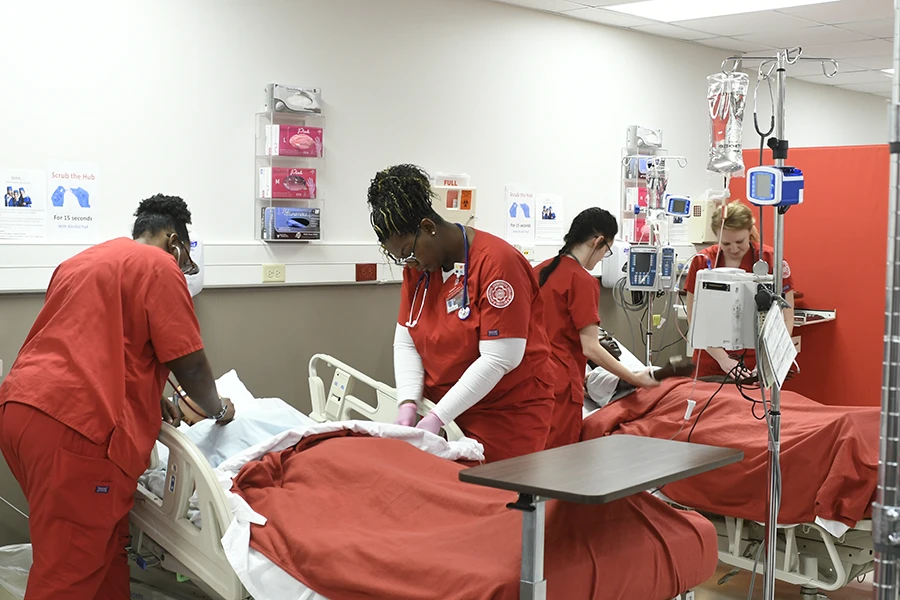
Medical-Surgical nursing simulation lab
Nursing students participate in medical-surgical nursing simulation during the fall semester of the junior year during the Alterations in Health I (NURS-H 354) course. This simulation focuses on the care of multiple patients, which mirrors a typical medical-surgical nursing care model. This simulation was developed to assist nursing students with critical thinking and clinical judgment development as the foundation for success on the RN Next Generation NCLEX exam that is taken after graduation.


